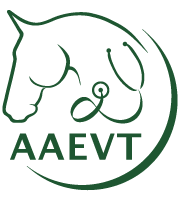The U.S. Food and Drug Administration (FDA) is calling on manufacturers of animal dewormers to voluntarily modify their product labels.
According to an FDA-issued press release, the request is being issued in an effort to preserve the effectiveness of drugs intended to treat certain internal parasites in livestock and horses. The agency would like the labels to include more information on antiparasitic resistance.
The requested label changes are for approved antiparasitic animal drug products only, and do not relate to antimicrobial drug products or antimicrobial resistance. Unlike the antimicrobial issue, the concern over antiparasitic drugs has no direct bearing on human health. But the agency notes that antiparasitic resistance in a growing animal health threat in the United States.
The class of drugs targeted in the labeling request is anthelmintics for livestock (cattle, sheep, goats, poultry and swine) and horses. Anthelmintics treat internal parasites (helminths) including tapeworms and roundworms. These internal parasites are becoming increasingly resistant to drugs that were highly effective in killing them in the past. As resistance develops, surviving worms pass on resistant genes to their offspring, creating a larger population of resistant parasites.
The FDA request specifies that the new product labels should include the following information:
- Any use of a dewormer can result in the development of antiparasitic resistance.
- Proper dosing is critical to the safe and effective use of a dewormer.
- End users should work with their veterinarian to monitor herds and flocks to determine the extent of antiparasitic resistance on a particular farm.
- Dewormers should be used as only one part of an internal parasite control program.
The FDA is requesting that animal health pharmaceutical companies add the new language to their labels of existing antiparasitic products by the end of 2019, and on labels for any new livestock or horse dewormer that FDA approves in the future.
